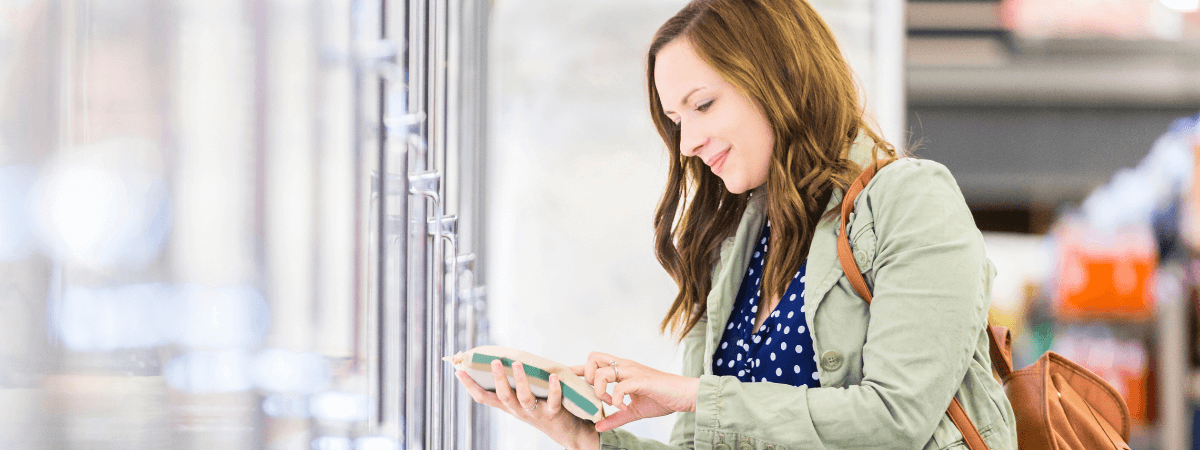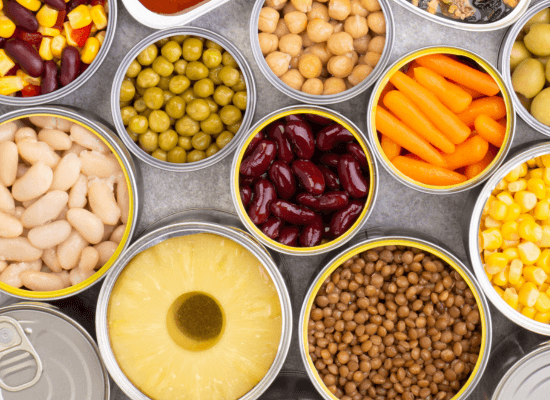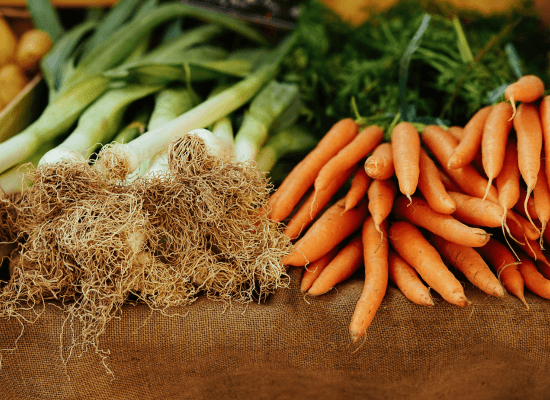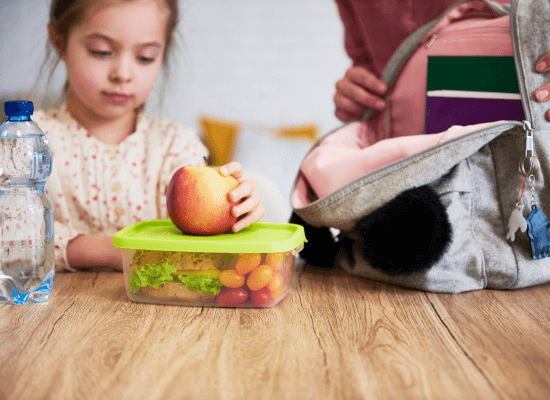The difference between use-by and best-before dates
How many times have you opened the fridge after a long week, only to notice that your well-intentioned grocery purchase has passed the date on the packaging, and you immediately throw it in the bin?
This is likely a scenario that plays out in thousands of homes across Australia every single day, but did you know that in doing this, you could be throwing out perfectly edible and nutritious foods?
The difference between use-by and best-before dates can be confusing. We’re here to debunk some common myths and share our top tips on how to safely prepare and store your food, reducing food waste and saving you money!
Best-before dates
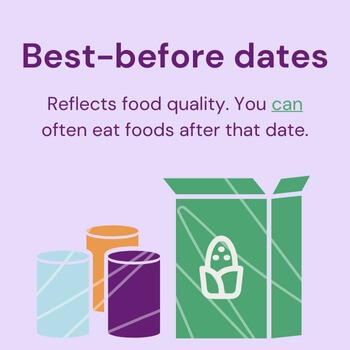
Best-before dates indicate how long a food will last before it begins to lose quality. It does not mean you cannot eat the food after that! Best-before dates are often applied to packaged products, canned foods, produce and pasta. If stored properly, it will often be safe to eat for up to 12 months after the best-before date, though it may have lost some quality and nutritional value.
So, what’s the verdict? These foods aren’t dangerous to eat after their best-before date! Stop and check before you throw out that bag of pasta in the back of the pantry.
Did you know:
According to Food Standards Australia New Zealand (FSANZ), ‘Food items are legally permitted to be sold after a Best Before Date and until they are no longer fit for human consumption’.
Use-by dates
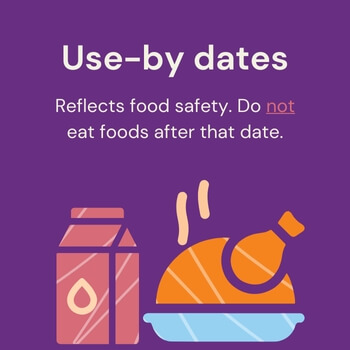
Use-by dates on the other hand are foods that for health and safety reasons, should not be consumed after a certain date. These dates are applied to highly perishable foods like meat, dairy and other meals and cooked foods. You should not eat foods that have passed their use-by date even if they seem ok, as they may contain harmful bacteria, except for some foods that have been frozen before this date.
Foods with an expired use-by date are not legally permitted to be sold as they pose health risks to consumers.
So, what’s the verdict? Do not risk eating food that has passed its use-by date even if it looks and smells ok!
How reliable are these dates?
Food manufacturers will often choose best-before dates that are well before when the food will actually deteriorate and spoil. This is to encourage you to eat the foods while they are fresh and at their best, meaning you should consider this date as more of a guide. Often frozen and canned foods will keep their quality long after their best-before date, provided the foods smells and looks as expected, it should be safe to eat.
This is also dependent on how the foods have been stored, based on the directions on the product. For example, fresh milk must be refrigerated or will likely spoil and cannot be safely consumed regardless of its best-before date.
Keep an eye out for products with a use-by date. These should never be eaten after this date has passed!
Food preparation and storage tips
- Wash your hands with soap under warm running water for at least 20 seconds. You should do this before handling food and if you pause to cough, eat, touch your hair, or do anything that could make your hands dirty again, wash your hands thoroughly before resuming food preparation.
- Thoroughly rinse all fruit and vegetables before consuming to remove chemicals, bacteria and any residual soil or insects.
- To help with correct food storage, ensure your fridge temperature is at least 5 °C or below. The freezer temperature should be below -15 °C. When food shopping, try and collect chilled or frozen food at the end of your trip and take them home to store in the fridge or freezer as quickly as possible. You could also use an insulated cooler bag or ice pack on hot days or longer trips.
- Leftover food that has been cooked should not be left out to cool for more than one hour. As soon as it has cooled, store it in a suitable food-grade container in the fridge, ensuring that raw foods are placed on the lower shelves below the cooked leftovers to avoid contamination.
- Use separate cutting boards and utensils when preparing raw foods, ensuring they are thoroughly washed and sanitised after each use.
Thank you for doing your part in reducing food waste. Click here to learn more about food safety.
If you or someone you know needs food support, please visit our Find Food portal so we can connect you to a Foodbank community partner in your area.
 Contact us
Contact us Log in
Log in
